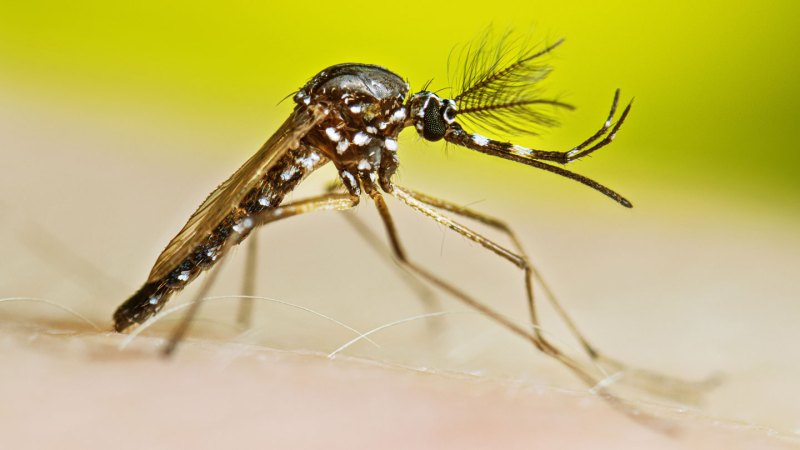Male mosquitoes may be nearly as bloodthirsty as females under certain conditions, new research suggests. That upends the notion that only female mosquitoes bite, drink blood and spread diseases while males sip nectar.
The finding hints that males aren’t entirely harmless and might play a tiny role in disease spread.
Male Culex tarsalis and Aedes aegypti mosquitoes, which are normally disinterested in blood, will take blood meals when humidity is low and they can’t get sugar, researchers report October 8 in a preprint submitted to bioRxiv.org.
A graduate student in entomologist Jason Rasgon’s lab at Penn State noticed that some male mosquitoes would sometimes feed on blood through a thin artificial membrane when researchers dropped the humidity and took away their usual nectar meals.
Rasgon wanted to know if parched males would try to get blood from a person, so he stuck his hand in cages containing male mosquitoes. Hydrated males mostly ignored him, but dehydrated males would land and probe his skin. One even bit him. “It just barely got into the first layer of the skin,” Rasgon says. “I was shocked [and] was not expecting that to happen.”
Male’s long tubelike mouth parts aren’t capable of piercing deeply enough to draw blood. But a scratch delivered by Rasgon’s cat, Jiji, allowed him to test whether males could get blood another way. Sure enough, dehydrated male mosquitoes sipped blood from the open wound.
In another experiment, A. aegypti males genetically engineered to be unable to sense humidity didn’t take blood meals more often when humidity was low. Those findings suggest that males may go for blood to slake their thirst.
One previous research paper indicated that blood is toxic to male Culex quinquefasciatus mosquitoes, and scientists thought all male mosquitoes lacked the ability to digest blood. But in Rasgon’s experiment, blood-fed male C. tarsalis mosquitoes lived as long as those that didn’t get blood, and even a smidge longer.
In nature, A. aegypti is the main carrier of yellow fever, but can also spread Zika, chikungunya and dengue, while female C. tarsalis can spread West Nile, St. Louis encephalitis and related diseases (SN: 8/26/24; SN: 6/2/15). Male C. tarsalis mosquitoes can be infected with West Nile virus and produce infectious virus in their saliva just like females can, the researchers found.
Rasgon doubts males are important spreaders of disease, but scientists need to reconsider the idea that male mosquitoes don’t feed on blood and should study whether, in rare instances, males might be able to spread viruses.


